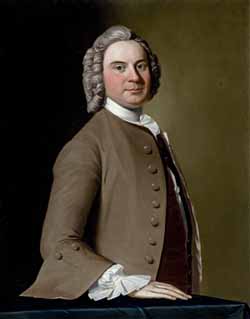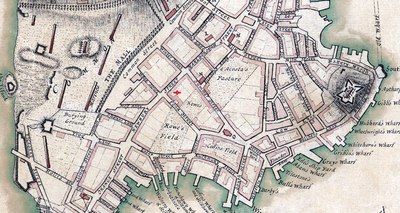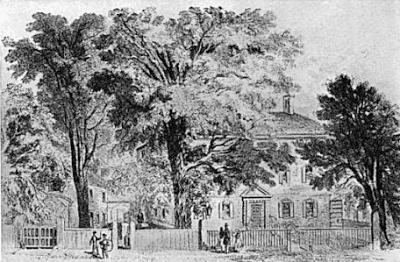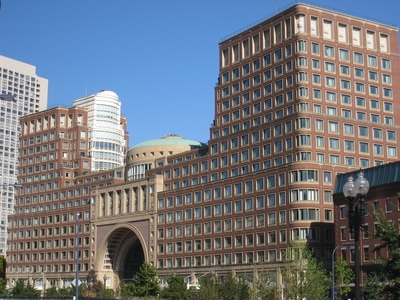- Guided Tours
- Self Guide Smartphone Tour
-
Revere Bells Index
- The Stickney Revere Bell Listings of 1976
- Ashby Mass. Revere Bell
- Paul Revere Bell of Beverly
- Revere Bells in Boston >
- California's 2 Paul Revere Bells
- Paul Revere & Son's Bell Westborough Massachusetts
- Falmouth, Massachusetts
- Revere Bell Fredericksburg VA
- Revere Bell Hampton NH
- First Parish Church of Kennebunk
- Revere Bells in Maine
- Revere Bell in Mansfield
- Revere Bell of Michigan
- Revere Salem Mass Bell
- Roxbury First Unitariarn Universalist Church and their Revere Bell
- Revere & Son Bell, Savannah Georgia
- Singapore Revere Bell
- Tuscaloosa Bell >
- Revere Bells Lost in Time
- Revere Bells Washington DC
- Revere Bell in Wakefield, Mass
- Revere Bells Woodstock VT
-
Bostonians
- Edward F Alexander of The Harvard 20th Civil War Regiment
- Polly Baker
- John Wilkes Booth
- The Mad Hatter, Thomas, Boston Corbett who Killed John Wilkes Booth
- Richard-Henry-Dana-Jr
- James Franklin
- Benjamin Harris of Publick Occurrences
- Oliver Wendell Holmes, Jr.
- William Lloyd Garrison
- USS Thomas Hudner DDG116
- Edward Hutchinson Robbins Revere
- Amos Lincoln
- King Philip
- Mayor's of Boston
- Mum Bett & Theodore Sedgwick
- James Otis
- Paul Joseph Revere
- Reverend Larkin's Horse
- John Rowe >
- Be Proud to be Called a Lucy Stoner
- Rachel Wall , Pirate
- Paul Revere the Coroner of Boston
- Deborah Sampson
- Who was Mrs. Silence Dogood?
- Dr. Joseph Warren's Dedication
- History Blog
- Lilja's of Natick
-
Collage of Boston
- 4th of July Parade, Bristol RI
- Boston Harbor
- The Customs House
- Forest Hills Cemetery
- Georges Island
- Nonviolent Monument to Peace - Sherborn
- The Battle Road
- Skate bike and scooter park
- Cassin Young & USS Cassin Young
- MIT
- Historic Charles River
- The Roxbury Standpipe on Fort Hill
- John & Abigail Adams National Park
- Boston's Racial History - Ante-Bellum
- New Page
John Rowe Always seemed to be in the Middle
An Overview of John’s Life
From time to time we will quote from John Rowe’s Diaries and letters leading to the Boston Massacre. He made 2,294 entries in his diary from 1759-1762 and 1764-1779. Hopefully the middle volume will be found. There are multiple sources of his diary. We will use the EBOOK-Free version available from Google. Another free source is the Internet Archive at https://archive.org.
The bullets below will provide you with a frame of reference behind the man. His diary entries should establish a good deal of sympathy for this wonderful, sociable, caring merchant, that always seemed to be in the middle of the pending revolution.
Images below of the man and his home thanks to Celebrate Boston.
We have not yet been able to find sketches of Rowe's Wharf in the 18th Century. Today it is prime real estate on the bay.
Walk Boston History Tours
Adults $12.00 USDMilitary in Uniform $10.00 USDChildren Under 12 $0.00 USD. sign up here.
An Overview of John’s Life
From time to time we will quote from John Rowe’s Diaries and letters leading to the Boston Massacre. He made 2,294 entries in his diary from 1759-1762 and 1764-1779. Hopefully the middle volume will be found. There are multiple sources of his diary. We will use the EBOOK-Free version available from Google. Another free source is the Internet Archive at https://archive.org.
The bullets below will provide you with a frame of reference behind the man. His diary entries should establish a good deal of sympathy for this wonderful, sociable, caring merchant, that always seemed to be in the middle of the pending revolution.
- Born in Exeter England 1/16/1715
- Immigrated to America around 1736
- Married Hannah Speakman in 1743
- At 21 years of age he purchased a warehouse on Long Wharf
- He purchased the north side of Pond Lane, Boston for his residents and completed this Nations first real estate teardown. See the map below.
- He raised crops, sheep and vegetables at his Pond Street home; today it is Washington Street, the center of the retail district
- The house was demolished in 1845. A common-fait suffered even by John Hancock’s Beacon Hill mansion
- Loved to fish. Caught eighty pounds of fish one day in Bullard’s Pond, then Natick Massachusetts
- Did not like salt water fishing
- He owned property in eight other Massachusetts towns and Connecticut
- His ships initially dealt in salt but broadened their interest to linen, woolens, silk, Indian taffeta and whaling
- He was a slave merchant
- At town meetings he served as overseer of the poor and selectman for three years
- He served on no political committees or radical caucuses
- He served on one committee that was critical of the Crown’s customs officials and their personal gain from office, but he never called for a revolution
- They worshipped as Episcopalians in King’s Chapel (Circa 1689). A church with a dominant Loyalist past; a stop on our tour
- They were avid church goers, perhaps as often as he fished
- He never picked up a walking stick in anger
- The Rowe’s were childless
- Some of his in-laws were British and others were loyalists. His friends were Sons of Liberty.
- One of the three tea ships of the Boston Tea Party was owned by him, although he seemed to have mistaken the ships name in his diary. He did not own the tea
- It is reported he attended the Tea Party meeting and indirectly endorsed the dumping
- His diary seems to place him home nursing an illness
- He remained neutral politically until March 17, 1776; our Boston Massacre tour will explain his conversion
- Died 2/17/1787 in Boston
- Initially Interred in a wooden vault in King’s Chapel with his wife
- John and Hannah’s remains were lost in 1872. Our tour will reveal the dramatic cause and possibly their final resting place
Images below of the man and his home thanks to Celebrate Boston.
We have not yet been able to find sketches of Rowe's Wharf in the 18th Century. Today it is prime real estate on the bay.
Walk Boston History Tours
Adults $12.00 USDMilitary in Uniform $10.00 USDChildren Under 12 $0.00 USD. sign up here.
- Guided Tours
- Self Guide Smartphone Tour
-
Revere Bells Index
- The Stickney Revere Bell Listings of 1976
- Ashby Mass. Revere Bell
- Paul Revere Bell of Beverly
- Revere Bells in Boston >
- California's 2 Paul Revere Bells
- Paul Revere & Son's Bell Westborough Massachusetts
- Falmouth, Massachusetts
- Revere Bell Fredericksburg VA
- Revere Bell Hampton NH
- First Parish Church of Kennebunk
- Revere Bells in Maine
- Revere Bell in Mansfield
- Revere Bell of Michigan
- Revere Salem Mass Bell
- Roxbury First Unitariarn Universalist Church and their Revere Bell
- Revere & Son Bell, Savannah Georgia
- Singapore Revere Bell
- Tuscaloosa Bell >
- Revere Bells Lost in Time
- Revere Bells Washington DC
- Revere Bell in Wakefield, Mass
- Revere Bells Woodstock VT
-
Bostonians
- Edward F Alexander of The Harvard 20th Civil War Regiment
- Polly Baker
- John Wilkes Booth
- The Mad Hatter, Thomas, Boston Corbett who Killed John Wilkes Booth
- Richard-Henry-Dana-Jr
- James Franklin
- Benjamin Harris of Publick Occurrences
- Oliver Wendell Holmes, Jr.
- William Lloyd Garrison
- USS Thomas Hudner DDG116
- Edward Hutchinson Robbins Revere
- Amos Lincoln
- King Philip
- Mayor's of Boston
- Mum Bett & Theodore Sedgwick
- James Otis
- Paul Joseph Revere
- Reverend Larkin's Horse
- John Rowe >
- Be Proud to be Called a Lucy Stoner
- Rachel Wall , Pirate
- Paul Revere the Coroner of Boston
- Deborah Sampson
- Who was Mrs. Silence Dogood?
- Dr. Joseph Warren's Dedication
- History Blog
- Lilja's of Natick
-
Collage of Boston
- 4th of July Parade, Bristol RI
- Boston Harbor
- The Customs House
- Forest Hills Cemetery
- Georges Island
- Nonviolent Monument to Peace - Sherborn
- The Battle Road
- Skate bike and scooter park
- Cassin Young & USS Cassin Young
- MIT
- Historic Charles River
- The Roxbury Standpipe on Fort Hill
- John & Abigail Adams National Park
- Boston's Racial History - Ante-Bellum
- New Page




